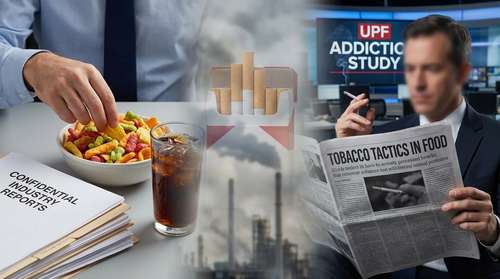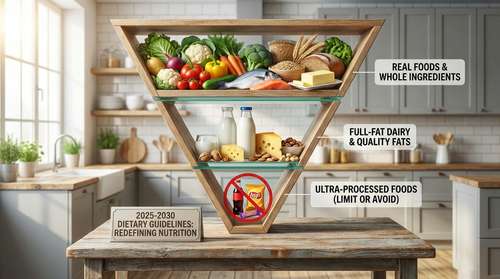Global Warming is Now Starting to Hurt our Diet
By
Josh Piers

The world’s food sources, in both developing and rich countries, are not at risk of jeopardy because of climate change.
Floods, droughts, more powerful hurricanes, heat waves, and wildfires can reduce crop production, kill livestock, and disrupt food transport. Carbon dioxide levels are rising as a result of human activity, making key crops like rice and wheat less nutritious.
Despite the fact that plants provide the majority of the world's daily nutrients, climate change is already generating droughts and flooding that threaten essential food crops. It will be considerably more difficult to feed the world's rising population if increased CO2 levels in the atmosphere render those crops less nutritious.
The world's top climate scientists have released their newest report on climate change mitigation, emphasizing that reducing meat consumption is a critical step in addressing the climate catastrophe.
ProVeg International, a food advocacy organization, warmly welcomes the release of the UN's Intergovernmental Panel on Climate Change (IPCC) report, which states that adopting a sustainable, healthy diet, which includes limiting meat and dairy consumption through a plant-based diet, is one of the most important individual contributions to reducing emissions.
“It is good to hear that the IPCC has called for dietary changes, in particular eating less meat, to reduce methane emissions. The global scientific community recognizing the huge impact that animal agriculture has on the climate is the right step in the right direction,” Raphael Podselver, Head of UN Advocacy at ProVeg, said.
The recommendation on meat reduction and a move towards a more plant-based diet is celebrated by NGOs and corporations alike. During COP26 the global methane pledge was heavily criticized after it did not specify which direct actions lead to a reduction in methane emissions.
As a response, a big food industry player, Upfield, published their methane emissions, showcasing that a shift to a more plant-based diet can cut your food related emissions by 50%.
"At COP26, important discussions began on how urgently we must address methane through fossil fuels as a contributor to the climate crisis, while methane in the food and agriculture sector was hardly mentioned," Sally Smith, Upfield's Global Director Sustainability & ESG, said in response to the IPCC report.
Upfield has revealed its own methane footprint, setting a precedent for methane transparency in the food industry. We are glad to contribute to a larger conversation by demonstrating methane footprint transparency, and we hope that this will motivate policymakers and businesses to do more – and more swiftly."
About a third of worldwide greenhouse gas emissions are attributed to the food sector.
Animal-based foods account for the majority of the total. According to a study published in the Nature Food journal, worldwide gas emissions from animal-based foods are twice as high as those from plant-based diets, accounting for roughly 20% of global emissions.
Mitigation strategies in those sectors, such as preventing clearcutting, sequestering carbon in agricultural soils, and adopting more sustainable diets, can offer up to 20% -30% of the emissions reductions required to keep global warming to 1.5 or 2 degrees Celsius over pre-industrial levels.
According to scientists, this is the point at which climate change begins to spiral out of control.
"Indigenous peoples, private forest owners, local farmers, and communities manage a major share of global forests and agricultural land, and they play a critical role in land-based mitigation strategies," according to the research.
According to a copy viewed by Reuters, the IPCC panel's initial report summary included a proposal that people switch to plant-based diets and cut their meat consumption.
However, the final version of the summary contained a suggestion for balanced meals that included sustainably farmed animal products as well as grains and legumes.
When asked about the revisions, Joanna House, a land use expert at the University of Bristol and one of the report's authors, said she couldn't say why they were made, but that the subject of dietary changes is complicated.
"Meat may be low carbon and support soil carbon and nutrients if it is produced sustainably," she said. "It can cause high net emissions if produced in an unsustainable manner, particularly in intensive systems needing enormous amounts of animal feed that result in deforestation."
According to the paper, global demand for animal products is increasing, creating a barrier to reducing agriculture's emissions.
What's Your Reaction?
Share this article
Author
Related Posts

Ultra-Processed Foods Are the New Tobacco: Industry Secrets Revealed

Eat Real Food: How the 2025-2030 Inverted Pyramid Is Redefining Nutrition

Breaking: Study Exposes Tobacco Tactics Used to Engineer Ultra-Processed Food Addiction
